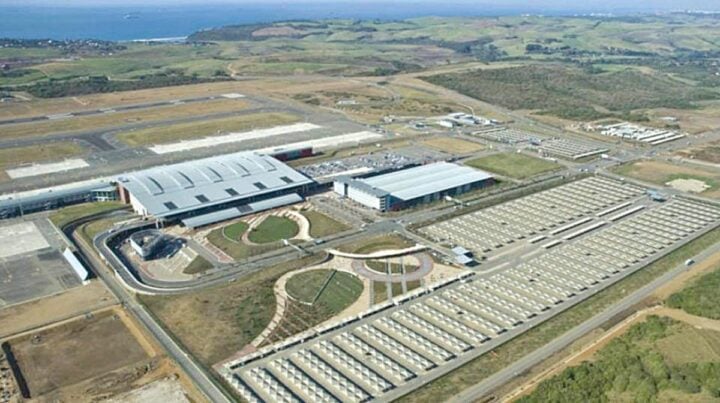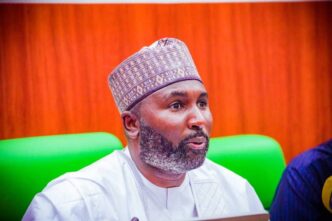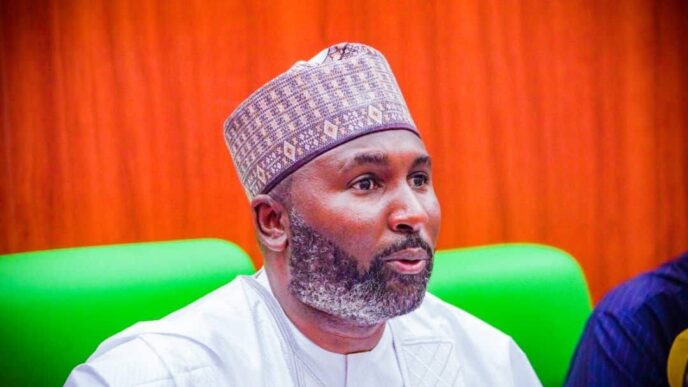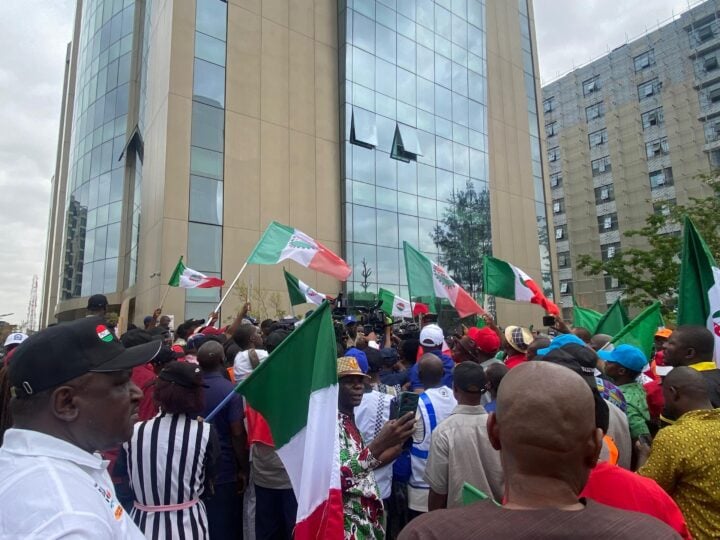BY AHMED SHUAIBU ISA
Nigeria’s economic landscape has been significantly impacted by a confluence of maladministration and systemic failures, exacerbating the hardships faced by its populace. As Africa’s most prominent economy, Nigeria remains heavily dependent on oil revenues, rendering it susceptible to the caprices of global market fluctuations. This dependency has precipitated fiscal imbalances and escalating public debt, while inadequate diversification efforts have left critical sectors—such as agriculture, manufacturing, and technology—stagnant. The resultant chronic unemployment, particularly among the youth, poses a formidable challenge to societal stability.
Corruption pervades the socio-economic fabric, with public funds frequently misappropriated through various schemes, thereby depriving essential sectors such as healthcare, education, and infrastructure of vital resources. The misallocation of government expenditures and intentional inflation of budgetary figures further exacerbate the crisis, diverting funds away from crucial developmental endeavours. The inconsistency in policy implementation, coupled with political volatility, further destabilises the economic landscape, as frequent reversals in policy deter investor confidence and impede growth.
Inflation, primarily driven by inadequate monetary policies and surging food prices, has significantly diminished purchasing power, plunging millions of Nigerians into poverty. High rates of unemployment, particularly among the youth, have fueled social unrest and fostered a pervasive sense of disillusionment. Moreover, the energy sector’s profound underdevelopment, characterised by persistent power shortages, stifles industrial growth and hampers productivity in both urban and rural settings.
Advertisement
The overarching issues of ineffective governance, administrative inefficiency, and insufficient legal and regulatory frameworks severely limit accountability and contract enforcement. The legal system, beset by perceptions of corruption and ineffectiveness, further diminishes confidence in Nigeria’s investment environment. Consequently, foreign direct investment remains sluggish, constraining economic opportunities and stunting potential growth.
The plight of the citizenry is compounded by a lack of high-quality social services, including healthcare and education, rendering the population susceptible to epidemics and illiteracy. Rising living costs, subpar infrastructure, and escalating poverty levels have left countless individuals struggling to fulfill basic needs. Collectively, these challenges—formed by poor governance, policy inconsistency, corruption, and mismanagement—profoundly inhibit Nigeria’s economic potential, exacerbating the hardships of the average citizen.
The ongoing arbitration regarding the $6 billion Mambilla Hydroelectric Power Project poses significant legal and economic implications for Nigeria. Central to this dispute is the contentious question of the existence and validity of a contractual agreement between the Nigerian government and Sunrise Power. The latter is seeking $2.3 billion in compensation for purported legal and financial damages stemming from an alleged breach of contract. This controversy is complicated by the absence of a signed contract, missing witnesses, and contradictory testimonies from former Nigerian leaders, raising serious doubts about the contract’s legitimacy.
Advertisement
POSSIBLE ECONOMIC IMPLICATIONS
Financial burden on Nigeria
The $2.3 billion demand for compensation constitutes a considerable financial strain, particularly in light of Nigeria’s already precarious fiscal circumstances. A ruling in favour of Sunrise Power could exacerbate the nation’s fiscal deficit and divert fundamental resources away from developmental imperatives such as healthcare, education, and infrastructure. This fiscal encumbrance would undermine Nigeria’s capacity to fulfill essential developmental objectives and aggravate its economic challenges.
Detrimental effects on investment climate
Advertisement
The extended legal dispute and the uncertainties surrounding the contract’s validity may engender an unstable investment landscape in Nigeria. Potential foreign investors may view the country as a high-risk environment, especially concerning large-scale infrastructure initiatives. A decrease in foreign direct investment (FDI) could stall economic growth and impede the advancement of key sectors vital for Nigeria’s sustained prosperity. The perception of an unstable investment climate could deter private sector engagement, ultimately constraining Nigeria’s diversification efforts.
Governance challenges and corruption
The Mambilla case illuminates critical issues surrounding corruption, mismanagement, and governance within Nigeria’s public sector. Accusations of fraud and operational irregularities in the project’s genesis could tarnish the government’s reputation and erode public trust in its leadership. Should these allegations be corroborated, public confidence in political leadership and the institutions tasked with overseeing major infrastructure projects could further diminish, complicating efforts to attract both domestic and international capital.
Setbacks in the energy sector
Advertisement
If implemented successfully, the Mambilla Hydroelectric Project holds substantial potential to alleviate Nigeria’s persistent energy shortages by generating renewable energy, thereby enhancing industrial productivity and facilitating residential development. However, the ongoing legal strife has delayed project initiation, exacerbating Nigeria’s energy dilemmas. Continued energy shortages stifle industrial advancement, hinder productivity, and restrict access to reliable electricity—crucial components for socio-economic growth. Persistent delays in the Mambilla project could prolong the critical energy infrastructural development essential for Nigeria’s economic transformation.
Political and legal consequences
Advertisement
The involvement of former Nigerian presidents, including Obasanjo and Buhari, whose conflicting testimonies add a political dimension to the dispute, may prolong the arbitration process and contribute to political instability. If the dispute is perceived as a political confrontation between former administrations, it could detract from pressing national concerns such as security, economic reform, and governance. The politicisation of this case risks tarnishing Nigeria’s international standing, complicating efforts to secure foreign partnerships and assistance. Additionally, ongoing political discord could destabilise the government and obstruct effective policy execution.
Repercussions for the legal framework and rule of law
Advertisement
A judgment favouring Sunrise Power could further undermine confidence in Nigeria’s legal system, reinforcing the impression that the country’s legal architecture is ill-equipped to safeguard its national interests. Such a precedent could result in an uptick in international claims and legal challenges against Nigeria in the future. Conversely, if Nigeria is perceived as shirking legal accountability or disregarding its commitments, it may jeopardise its relationships with foreign entities and complicate future international collaborations. Strengthening adherence to international legal standards and fortifying the integrity of the legal system is paramount to restoring confidence in governance and the investment landscape.
Conclusion
Advertisement
The arbitration concerning the Mambilla Hydroelectric Power Project represents a significant threat to Nigeria’s economic stability and growth trajectory. The anticipated financial liabilities, coupled with delays in critical infrastructure projects, threaten to exacerbate Nigeria’s already vulnerable economic situation. Furthermore, the protracted legal dispute risks undermining the investment climate, eroding public trust in governance, and worsening the energy crisis.
To mitigate these risks, Nigeria must prioritise immediate reforms in governance, legal frameworks, and infrastructure development. Enhancing the integrity and efficiency of legal institutions, ensuring transparent and enforceable contracts, and restoring investor confidence are essential. Moreover, resolving the Mambilla dispute and expediting the implementation of crucial energy infrastructure initiatives will be critical in addressing Nigeria’s energy shortfall and fostering sustained economic growth.
The track to stability and prosperity for Nigeria hinges on its ability to resolve internal disputes effectively, commit to legal reforms, and cultivate an environment conducive to investment and economic diversification. Only through these strategic measures can Nigeria aspire to realise its long-term economic potential while solidifying its position within the international community.
Ahmad Shuaibu Isa can be contacted via [email protected]
Views expressed by contributors are strictly personal and not of TheCable.
Add a comment









